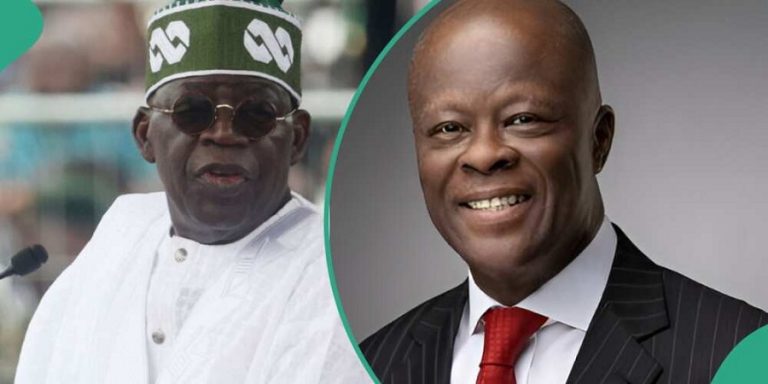
In his 64th Independence Day speech, Nigeria’s President Bola Tinubu revealed that his administration had cleared over N30 trillion in Ways and Means debt, a significant development in Nigeria’s economic restructuring.
This comes amid the president’s broader narrative of economic reform, which he claims has steered the country away from the brink of collapse, stabilized monetary policy, and attracted substantial foreign direct investment (FDI).
According to Tinubu, the government has been taking steps to address fiscal imbalances that have long plagued the Nigerian economy, including a high debt-to-GDP ratio and foreign exchange obligations to businesses. He said that the N30 trillion Ways and Means debt owed to the Central Bank of Nigeria (CBN) had been cleared, alongside a $7 billion forex backlog.
Register for Tekedia Mini-MBA edition 19 (Feb 9 – May 2, 2026): big discounts for early bird.
Tekedia AI in Business Masterclass opens registrations.
Join Tekedia Capital Syndicate and co-invest in great global startups.
Register for Tekedia AI Lab: From Technical Design to Deployment (next edition begins Jan 24 2026).
“We inherited a reserve of over $33 billion 16 months ago. Since then, we have paid back the inherited forex backlog of $7 billion. We have cleared the ways and means debt of over N30 trillion,” he said.
Tinubu also claimed that FDI worth more than $30 billion had been attracted to Nigeria over the past year, largely due to his government’s economic reforms.
The president stated, “Without the necessary reforms being executed by this administration, the economy would have collapsed.”
He further noted that under his leadership, the government has reduced Nigeria’s debt service ratio from 97% to 68%, even while maintaining the country’s foreign reserves at $37 billion.
Tinubu acknowledged the escalating cost of living, particularly with regard to food prices, as a pressing issue. He reassured Nigerians that the government is making efforts to curb these rising costs, which he described as a global phenomenon.
The president praised certain state governors for supporting agricultural programs, urging others to invest in mechanized farming as a means to boost food production and reduce costs. He also announced that the Federal Government had approved a local plant to assemble 2,000 John Deere tractors and other farming equipment, set for completion within six months.
The Ways and Means Debt Controversy
The Ways and Means debt mentioned in the president’s speech refers to advances extended by the CBN to the federal government to cover shortfalls in revenue. This facility, essentially an emergency loan, became a subject of national debate in the final months of former President Muhammadu Buhari’s administration when it ballooned to N22.7 trillion.
In May 2023, just before the Buhari administration concluded, the Senate approved the restructuring of this loan, converting it into a 40-year government bond at a 9% interest rate with a 3-year moratorium. An additional N7.3 trillion was later added to the debt, bringing the total to N30 trillion.
However, President Tinubu’s claim that the Ways and Means debt has been cleared has raised eyebrows, as it contrasts with official statements and mechanisms around the repayment of this debt. According to earlier reports, N7 trillion of the Ways and Means advances had been paid off, with the remaining debt restructured into a long-term bond.
Wale Edun, the Minister of Finance and Coordinating Minister of the Economy, had stated earlier that the government would not resort to further Ways and Means advances from the CBN to meet its financial obligations.
Expert Expresses Concerns
Tinubu’s declaration on the Ways and Means has not gone without scrutiny. Financial analysts and economists have questioned the accuracy of the president’s statement, noting that the speech misrepresented the status of Nigeria’s debt obligations.
Kelvin Emmanuel, a financial analyst, raised concerns about the accuracy of the debt repayment claims. He questioned whether the CBN had provided the president with inaccurate information or if the president’s handlers had inserted erroneous figures into the speech.
The debt in question, according to Emmanuel, had been securitized into a long-term bond, with repayments scheduled to begin in 2026, making the claim that the entire N30 trillion debt had been cleared prematurely. He also pointed out that the Ministry of Finance has been drawing down on the N7 trillion that was not securitized and was attracting an interest rate of the monetary policy rate (MPR) plus 3%.
“Recall the DMO securitized the debt into a 40-Year government bond at 9% interest with a 3-Year moratorium. Payment begins in 2026 (even if sections 38 says the Central Bank as underwriter to all FG loans cannot be a guarantor in a transaction where it’s an interested party),” Emmanuel said.
The controversy surrounding Tinubu’s claims about Ways and Means debt clearance mirrors the skepticism surrounding his $30 billion FDI claim, which has also been called into question due to inconsistencies with official data. These perceived inaccuracies could have wider implications for investor confidence, as analysts warn that misrepresenting economic data can deter foreign investors from engaging with Nigeria’s financial markets.
The government’s broader economic strategy, while centered around reform and stabilization, has been subject to increased scrutiny as the country continues to struggle with high inflation, currency depreciation, and rising debt levels. Critics argue that while the president’s speech emphasized significant achievements, it glossed over some of the more pressing economic challenges that remain unresolved.



